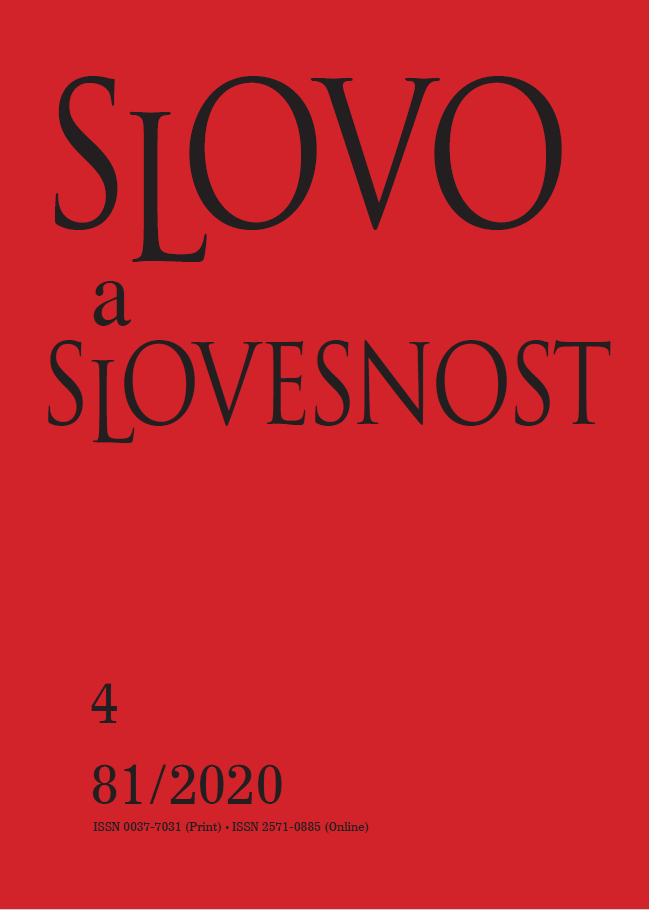Deverbativnost versus deadjektivnost: k možnostem interpretace substantiv s dějovým příznakem (se zaměřením na období staročeské a středněčeské)
Deverbality versus deadjectivity: on the possibilities of interpreting nouns with an action symptom (focusing on the period of Old and Middle Czech)
Author(s): Tereza Hejdová, Miloslava VajdlováSubject(s): Western Slavic Languages
Published by: AV ČR - Akademie věd České republiky - Ústav pro jazyk český
Keywords: Old Czech; Middle Czech; word-formation; derivation; deverbative nouns; deadjectival nouns; onomasiological categories;
Summary/Abstract: Numerous Old and Middle Czech derived nouns contain a morphematic component typical for verbal participles in their structure. These substantives can be interpreted in terms of word formation in different ways, depending on which semantic feature is accentuated: as motivated by a verb or by a deverbal adjective with a different meaning and categorical classification. Some other nouns are indisputably derived directly from the verbs (e.g. jědenec ‘eater’). In this article, we study possible factors for this, which involves determination of the motivation. Following our analysis, we consider the meaning of the derivative to be decisive. Finally, we observe that historical material requires modification of the onomasiological categories used in contemporary Czech, and we determine reasons for the difference between the situation of historical and contemporary Czech in this regard.
Journal: Slovo a slovesnost
- Issue Year: 81/2020
- Issue No: 4
- Page Range: 269-282
- Page Count: 14
- Language: Czech

